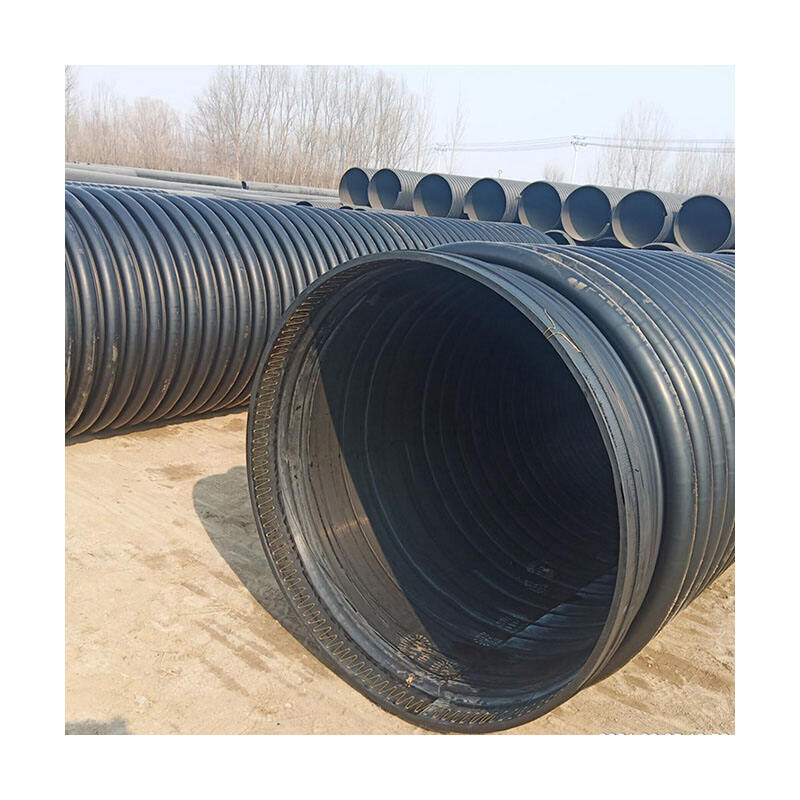Krah Pipe Overview: Cost, Structure & Application Guide
Understanding Modern Pipeline Solutions with Krah Technology
The evolution of pipeline infrastructure has seen remarkable advancement with the introduction of Krah pipe systems. These innovative piping solutions represent a significant leap forward in large-diameter thermoplastic pipe technology, offering unparalleled benefits for various industrial and municipal applications. As we explore the comprehensive world of Krah pipe systems, we'll discover why they've become increasingly prevalent in major infrastructure projects worldwide.
With environmental consciousness and cost-effectiveness becoming paramount in construction projects, Krah pipe systems have emerged as a leading choice for engineers and contractors. The system's unique design and manufacturing process result in pipes that combine strength, durability, and installation efficiency – qualities that modern infrastructure demands.
Technical Specifications and Manufacturing Process
Material Composition and Properties
Krah pipe systems are manufactured using high-grade polyethylene (PE) or polypropylene (PP) materials. These thermoplastic materials offer exceptional chemical resistance, making them ideal for various applications, including sewage systems and industrial waste transportation. The pipes feature a unique profile wall structure that maximizes strength while optimizing material usage.
The molecular structure of these materials ensures outstanding resistance to corrosion and abrasion, significantly extending the service life compared to traditional piping materials. Additionally, the smooth internal surface reduces friction losses and prevents sediment accumulation, ensuring optimal flow characteristics throughout the system's lifetime.
Manufacturing Excellence
The production of Krah pipe involves a sophisticated spiral wound manufacturing process. This innovative technique allows for the creation of large-diameter pipes with precise dimensional control and consistent quality. The process enables the production of pipes with varying wall thicknesses and profiles, optimizing material distribution based on specific application requirements.
Quality control measures are implemented at every stage of manufacturing, ensuring that each pipe meets stringent international standards. The automated production process includes continuous monitoring of wall thickness, diameter tolerance, and profile geometry, resulting in products that consistently exceed industry requirements.
Applications and Installation Considerations
Infrastructure Projects
Krah pipe systems find extensive use in municipal infrastructure, particularly in storm water management and sewage systems. Their large diameters – ranging from 300mm to 4000mm – make them ideal for main trunk lines and collector systems. The pipes' excellent hydraulic properties and minimal maintenance requirements make them particularly attractive for urban development projects.
Industrial applications include chemical processing plants, mining operations, and power generation facilities. The pipes' resistance to aggressive chemicals and ability to handle high temperatures make them suitable for demanding industrial environments where traditional materials might fail prematurely.
Installation Methods and Best Practices
The installation of Krah pipe systems requires careful attention to proper bedding and backfill procedures. However, their lightweight nature significantly reduces installation costs compared to concrete or steel alternatives. Special joining methods, including electrofusion and extrusion welding, ensure watertight connections and system integrity.
Site preparation and handling guidelines must be strictly followed to maximize the benefits of these advanced piping systems. Proper training of installation crews and adherence to manufacturer specifications are essential for achieving optimal performance and longevity.

Cost Analysis and Economic Benefits
Initial Investment Considerations
While the upfront cost of Krah pipe systems may appear higher than some traditional alternatives, the total lifecycle cost analysis reveals significant long-term savings. The reduced installation time, lower transportation costs, and minimal maintenance requirements contribute to favorable economic outcomes for project owners.
The lightweight nature of the pipes reduces heavy equipment requirements during installation, leading to substantial savings in construction costs. Additionally, the longer service life and reduced maintenance needs result in lower operational expenses over the system's lifetime.
Long-term Value Proposition
The durability and performance characteristics of Krah pipe systems translate into exceptional long-term value. With an expected service life exceeding 100 years, these systems offer remarkable return on investment. The resistance to chemical corrosion and physical damage minimizes the need for repairs or replacements, reducing maintenance budgets significantly.
Environmental benefits, including reduced carbon footprint during manufacturing and transportation, align with sustainable development goals while potentially qualifying projects for environmental certifications or incentives.
Design Considerations and Engineering Support
Technical Design Assistance
Manufacturers of Krah pipe systems typically provide comprehensive technical support during the design phase. This includes detailed engineering calculations, hydraulic analysis, and structural design assistance. Advanced software tools help engineers optimize system design while ensuring compliance with relevant standards and regulations.
The flexibility in pipe specifications allows designers to tailor solutions for specific project requirements, considering factors such as ground conditions, loading requirements, and hydraulic demands.
Quality Assurance and Testing
Rigorous quality control procedures govern the production and installation of Krah pipe systems. Regular testing of raw materials, finished products, and installation procedures ensures consistent performance and reliability. Documentation and certification processes provide confidence in the system's long-term performance capabilities.
Third-party testing and certification programs validate the pipes' conformance to international standards, providing additional assurance to project stakeholders.
Frequently Asked Questions
What makes Krah pipe different from conventional piping systems?
Krah pipe systems utilize advanced spiral wound technology and profile wall designs that optimize material usage while maintaining superior strength. The manufacturing process allows for larger diameters and customizable wall profiles, providing better performance characteristics compared to traditional pipe systems.
How long can Krah pipe systems be expected to last?
When properly installed and maintained, Krah pipe systems have an expected service life exceeding 100 years. The high-quality thermoplastic materials and sophisticated manufacturing process result in exceptional durability and resistance to environmental factors that typically cause pipe deterioration.
What are the environmental benefits of choosing Krah pipe?
Krah pipe systems offer several environmental advantages, including reduced carbon emissions during manufacturing and transportation due to lighter weight, lower energy consumption during production, and the potential for material recycling at the end of service life. The extended durability also means less frequent replacement and reduced environmental impact over time.








